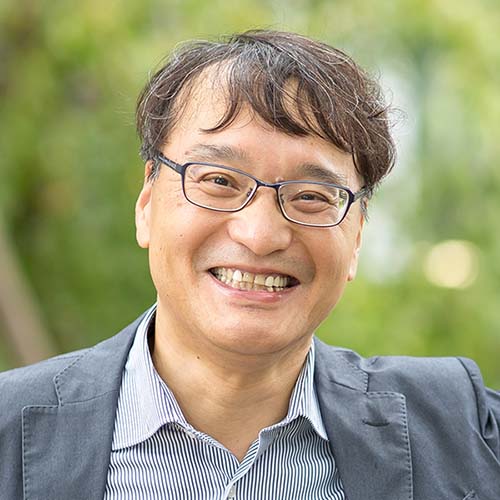Message from Dean
Dean of the Graduate School of Letters, Ritsumeikan University
Hideki ENDO

The Graduate School of Letters is a place for specialized studies in humanities. What is humanities? It is the academic discipline that emphasizes culture as represented by language and symbols (maps being one such symbolic representation) and explores human existence. With a wide variety of education and research fields in humanities, the Graduate School of Letters consists of two majors: the Major in Humanities and the Major in Informatics of Behavior and Culture. The former is divided into eleven specializations and the latter into three, creating a “universe of knowledge” in which diverse academic fields are interconnected and integrated.
Each specialization offers two courses according to the objectives of graduate students. Starting in the 2024 academic year, these courses are renamed the Integrated Research Course and the Advanced Exploration Course. The former is designed for those who wish to acquire the latest research methods and specialized knowledge, develop highly original research, and become researchers at the forefront of the academic world. The latter is intended for students who wish to acquire expertise in each of the fourteen specializations in greater depth than during their undergraduate years in order to play an active role in society.
The Graduate School of Letters has produced many scholars who have been at the forefront of the academic world. Training students into scholars is an extremely important responsibility of graduate schools, but the purpose of graduate education is not necessarily limited to producing leading scholars. Equally important is to help students wishing to deepen their undergraduate studies to think more deeply about the questions they have discovered and continue to seek answers by applying various methods taught at the graduate level.
The analytical and thinking skills such as problem-setting and problem-solving skills and logical thinking skills acquired in our program are desperately needed in modern society. Having successfully mastered these skills, the graduates of our master’s program have been active in diverse fields. The journey of humanities—emphasizing language and symbols to explore human existence—does not necessarily end with the completion of undergraduate studies. In today’s uncertain and chaotic world, it is the knowledge of the humanities that is much needed even after undergraduate studies, because it enables us not only to calmly assess any situations but also to discern, relativize, and mediate diverse values, gender, historicity, languages, religions, cultures, and regions.
That is why we encourage you to pursue your studies at our graduate school to acquire new perspectives and views. It is our sincere hope that, through your studies at our graduate school, you become someone who would not only “believe in the future and live in the future” as the former president Hiroshi Suekawa wrote, but also “create the future (futurize),” as the motto of R2030 Ritsumeikan Academy Vision suggests.

